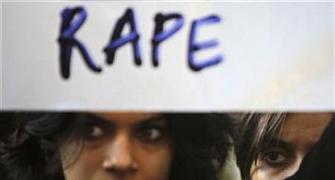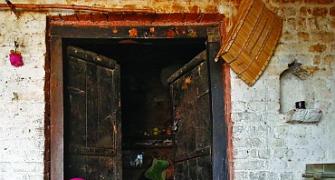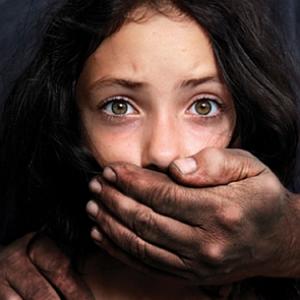‘Criminalising marital rape does not give the wife relief.’
‘We don’t need a change in the law, we need a change in perspective.’

Marital rape could soon become a criminal offence. Until last month, Union Minister for Woman and Child Development Maneka Gandhi maintained that the law would not be suitable for India, given the belief that marriages are a sacrament.
This drew criticism from women’s rights activists who have been campaigning for the cause, leading to a recent statement by the minister saying criminalisation of marital rape would be considered by the Law Commission during its review of the criminal justice system.
Flavia Agnes, lawyer and founder of women’s legal aid group Majlis, provides a contrary view in an interview with Ranjita Ganesan. Edited excerpts.
In your view, should marital rape be criminalised?
Does marital rape amount to sexual violence? It certainly is part of it, according to me. But when a woman says she is sexually violated, that is not the only thing happening to her -- it is often coupled with the husband not giving money, or beating her. It sounds sensational to say that India must do something. But what must India do?
In some cases, the wife who is facing abuse may not want a divorce, she may want a roof over her head. Criminalising does not give her this relief. Also, conviction in ordinary rape cases is very low. It is higher when victims are under 10 years of age. At ages 15-18, it gets low. After that, it gets worse. If a woman says she has been abused by her boyfriend, the conviction rate is abysmal.
So what recourse is available currently for women who are raped by their husbands?
In the Domestic Violence Act, cruelty is described in various ways -- for example, economic violence of not giving money to the wife, physical violence like beating, and emotional violence like humiliating her body or her parents. Then, there is also sexual violence. Domestic violence is a civil law and it gives you remedy. Women can ask for protection and maintenance; they can ask for a restraining order against their husbands. Further, under 498(a) of the Indian Penal Code, any kind of physical or mental or emotional harassment is explained as cruelty.
Under explanation ‘b’ of the same section, making demands for dowry is described as punishable. It leads to three years imprisonment, and is dealt with at the magistrate’s court. For the Domestic Violence Act too, the forum is the magistrate’s court.
What might be the challenges, according to you, in implementing the law, if marital rape is criminalised?
The woman will have to present her case in the sessions court. She has to prove that on that particular night, sex was without consent, that she was not in the mood for it, or he had forced her after she had gone to sleep, or was ill. That will be a challenge.
Lawyers could abuse this too. They will expect huge amounts of money from the victim for filing such cases. That is what we are seeing happening today. This drains the woman economically. The lawyers also tell her that if she is filing charges for rape, the husband will choose to settle, but the husband often fights to try and prove her wrong.
Under 498(a), if the complaint is proved false, men’s groups are demanding that the woman has to pay compensation. That demand will come in the case of marital rape laws too. All this has not helped women at all.
The argument is made by some groups that marital rape laws can be misused by women. What is your view?
We hear allegations like this all the time, even with 498(a). Men’s rights group want the law diluted, or they want to make it equal so that they can file cases too. So you have a law in place which is not used at all because of this whole propaganda about misuse. It has led to a situation where women don’t come forward with complaints, and police refuse to file cases under these laws.
What alternatives would you suggest to criminalisation?
The attitude of campaigners is that if one law does not work, we will have another. We don’t need a change in the law, we need a change in perspective. It should be dealt with 498(a) and the Domestic Violence Act, so that it gives protection to women. If there is a woman being abused, file a case under those laws and let’s see how they progress. If it does not work, why is it not working? We need to focus on that.
What is the international scenario when it comes to marital rape laws?
Hardly anybody uses it. They don’t struggle with allegations of misuse because in their law, men and women are equal and can both file cases.
As criminalisation is being considered in the review of the criminal justice system, what are your expectations?
If this comes into being, immediately there will be a furore among men’s rights groups. Very soon, they will dub it a terrorist law using the question of misuse, as in the case of other laws that I mentioned.
Image used is for representational purposes only











